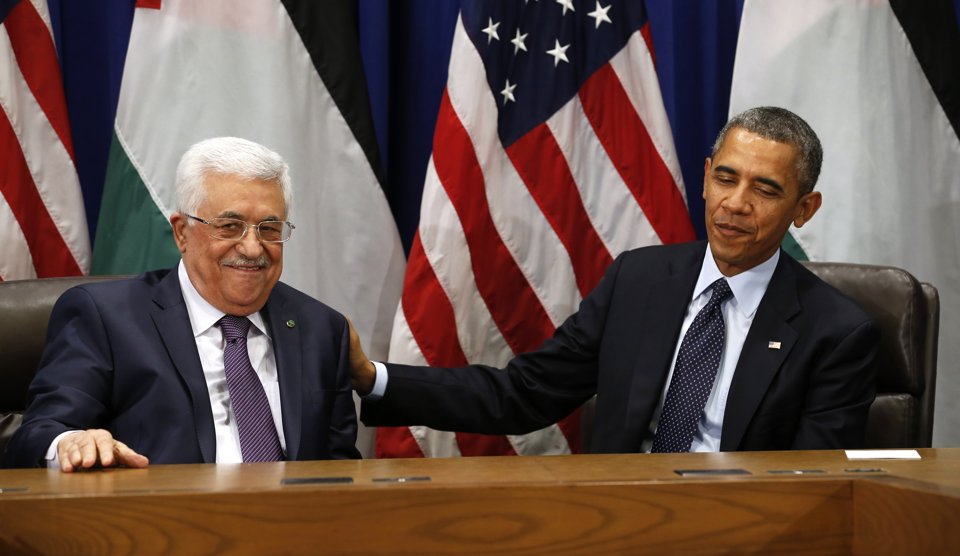The Tragedy of Arabia
According to recent U.N. Arab Human Development Reports, written by an independent group of leading Arab scholars and intellectuals, oil has become a curse rather than a blessing for the Arab world. Unlike Japan, Taiwan, Israel, Singapore and many other countries who recognized early on that their scarce resources required them to turn their lack of material resources into technological strengths in order to become competitive in the world economy, the Arabs relied exclusively on the great sea of oil beneath their deserts as a substitute for intellect, creativity and entrepreneurship. It has now cost them their future and saddled the world with a parasitic and pathologically suicidal movement that has proven its capacity to destroy and its incapacity to create anything of substance to human civilization.
While it can be argued that the borders of the Arab Middle East are man-made deformities that must be redrawn to take into account the tribal nature of Arab society rather than the strategic interests of the French and the British who created them in the early 20th century, border corrections alone cannot account for, nor will they resolve the sorry state of affairs in the Arab world. While a redefinition of borders would separate Shiites from Sunnis and Kurds from Baluchis, the problems plaguing Arab society in the 21st century cannot be so easily resolved.
That is because Arab societies, for the most part, have immersed themselves in a culture of denial. They emphasize struggle, quash competition and reject alternate approaches or ways of thinking. With few exceptions, Arab governments live in a state of internal fear that avoids investigating their failures or acquainting themselves with or opening their societies to the cultures of others. As a result, their societies cannot hand down positive achievements to future generations unless they overcome their secretiveness, their isolation, and especially their compulsive need to blame others for their own failings.
Several years ago, Abd Al-Munim Said, head of the Al-Ahram Research Center in Egypt, wrote: “We thought that by the end of the 20th century, the Arab mind would be open enough not to explain everything with a ‘conspiracy theory’… The biggest problem with conspiracy theories is that they keep us not only from the truth, but also from confronting our faults and problems. This way of thinking relates any given problem to external elements, and thus does not [lead] to a rational policy to confront the problem” and Nabil Sharaf Al-Din, an Egyptian liberal representing the online journal Elaph, voiced the same caution in the Egyptian independent oppositionist paper Al-Masri Al-Yawm in August 2008 when he noted: “It must be stated that a society that does not allow pluralism or debate is a society in crisis.”
Consequently, in Arab politics today, from Egypt to Riyadh, opponents are neither answered nor rebutted. They are discredited, imprisoned, exiled or murdered and with each disaster, defeat, or tragedy, it is always the Zionists, colonialists, or American imperialist conspiracies that are to blame. For all the oil revenues that have flowed into the wealthier Arab countries, the overall state of the Arab world is appalling. It does not produce one single manufactured product of sufficient quality to sell on world markets. Arab productivity is the lowest in the world. There is not a single Arab university of world-class. The once-great tradition of Arab scientific achievement that flowed from Andalusian Spain has degenerated into a few research programs in the fields of chemical and biological warfare. There is not one country in the Arab world that can truly call itself a democracy. No Arab state genuinely respects human rights. No Arab state hosts a responsible media. No Arab society fully respects the rights of women or minorities, and no Arab government has ever accepted public responsibility for its own shortcomings.
Blame has become the opium of the Arabs, and the greatest blame for their failures is that directed at the United States and, of course, Israel. A central Bernard Lewis theme is that Muslims have felt downtrodden since 1683, when the Ottomans failed for the second time to sack Christian Vienna. For 300 years, Prof. Lewis says, Muslims have watched in horror and humiliation as the Christian civilizations of Europe and North America have eclipsed them militarily, economically and culturally. The Arab world continually identifies Jews with the threatening aspects of modernity – secularization, the individual pursuit of happiness, freedom of opinion and the equality of women – and for them, the birth of the modern state of Israel represents the ultimate threat – the arrival of rapid modernization.
The Arab Muslim world prefers to blame others, to sleepwalk through history as it were, and to cheer when tyrants and terrorists avenge them. They knew that Saddam Hussein was a monster who had killed more Arabs than Israel ever could. They knew he was the worst thing to happen to the Arab world since the Mongols sacked Baghdad in 1258. But they were (and continue to be) so discouraged that they needed to inflate even “the butcher of Baghdad” into hero status. During the war the Palestinians cheered him on and celebrated his defiance of the American war machine, but, in the end, he failed them as well.
While most Arabs understand America’s current dilemma in Iraq and fear the expansion of Iranian Shiism and Ahmedinejad’s religious imperialist ambitions, they are not eager to assist in stabilizing that country. They prefer to see America leave humiliated even if it is at the expense of the Iraqi people and the stability of the entire region. Above all, they do not want to see America, a non-Muslim superpower, as the cause for Iraq’s good fortune, especially when the Arab countries did nothing to stop Saddam Hussein’s brutal regime. And because Arab societies require a target for their anger and frustration, they are increasingly drawn to radical Islam.
Since external conflict is the lifeblood of Arab dictatorships (be they secular or theocratic), conflict in the Arab world is not seen as a problem that requires a solution. The enemy of the Middle East is not the West so much as modernism and the humiliation that accrues when millions are nursed by fantasies, hypocrisies, and conspiracies to explain away their own failures. Quite simply, any society whose allegiance is to the tribe rather than to the nation, that does not believe in democracy enough to institute it, shuns female intellectual contributions, allows polygamy, insists on patriarchy, institutionalizes religious persecution, ignores family planning, expects endemic corruption, tolerates honor killings, sees no need to vote, and defines knowledge as mastery of the Quran… is deeply pathological.
Instead of responding to demands for democracy, human rights, higher living standards, less corruption and incompetence, reducing illiteracy or improving education and educational standards, Arab rulers blame America for their societies’ ills and refocus popular anger against it. That enables them to demand national unity and silence reformers in the face of the supposed American “threat,” and by seizing on anti-Americanism as the excuse for Arab failure, they insure that their opponents cannot blame them. Hence Egypt and Saudi Arabia have willingly accepted American weaponry and protection, yet they continue to promote anti-Americanism through their governments’ policies and their state-controlled media.
In the end, casting the blame for their own misfortunes on the West will not save them from the rising tide of radical Islam in their midst. That is because the histories of these countries are so intertwined and their socio-economic problems so interrelated and severe that none of them will be able to escape the consequences of those failures. “The painful truth,” writes columnist Suleiman Al-Hatlan in the daily Al-Watan in Saudi Arabia, “is that the acts of violence and barbarism occurring at present are nothing but the natural consequence of generations of Muslims having been misled and force-fed speeches (filled with) hostility and hatred for others over the course of decades, which deepened the backwardness and the ignorance in the Islamic world.”
Despite hundreds of billions of dollars in income from oil and massive amounts of Western humanitarian aid, the Arabs have yet to create one single monument to human achievement. Rather, at different times, the Arabs have pointed the finger of blame at colonialists, multinationals, missionaries, communists, liberals, religious and/or ethnic minorities, middle classes and even poor Orientalists. But the blame rests only in themselves. To the best of my recollection, the Arab League has never once convened an Arab summit to discuss the backward state of education in the Arab world and therein lies the problem.
The sad truth is that the fantasies portrayed in Arabian Nights have long since become an Arabian nightmare in large measure because (as Victor Davis Hanson writes): “The Arab world has no real consensual governments; statism and tribalism hamper market economics and ensure stagnation. Islamic fundamentalism, the absence of an independent judiciary, and a censored press all do their part to ensure endemic poverty, rampant corruption and rising resentment among an exploding population.
For the Arab world, the status quo is no longer sustainable and time is not on its side. The Salafi jihadists are gaining strength in Egypt, Syria, Jordan, Lebanon and in the Palestinian territories and warn that an apocalyptic Armageddon between the Muslim world and the West is approaching. Whether moderate Muslim intellectuals and Western-educated Muslim technocrats will be able to bring on an Islamic Renaissance before rising radical Islam draws us all into a nuclear confrontation remains to be seen. Their success in doing so is by no means assured.



